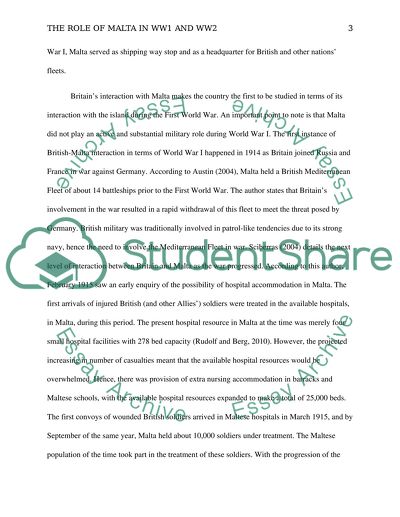Cite this document
(“Role of Malta in WW1 and WW2 Essay Example | Topics and Well Written Essays - 3500 words”, n.d.)
Retrieved from https://studentshare.org/history/1394469-role-of-malta-in-ww1-and-ww2
Retrieved from https://studentshare.org/history/1394469-role-of-malta-in-ww1-and-ww2
(Role of Malta in WW1 and WW2 Essay Example | Topics and Well Written Essays - 3500 Words)
https://studentshare.org/history/1394469-role-of-malta-in-ww1-and-ww2.
https://studentshare.org/history/1394469-role-of-malta-in-ww1-and-ww2.
“Role of Malta in WW1 and WW2 Essay Example | Topics and Well Written Essays - 3500 Words”, n.d. https://studentshare.org/history/1394469-role-of-malta-in-ww1-and-ww2.


